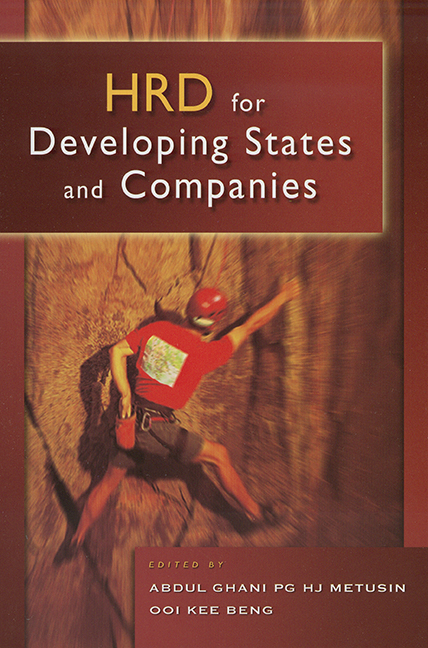Book contents
- Frontmatter
- Contents
- Foreword
- Preface
- Editorial Remarks
- Acknowledgements
- Introduction
- HRD for Statesmen
- HRD Strategies for Companies
- 7 Crafting and Implementing a Strategic HR Programme
- 8 Enhancing Human Capital in the New Economy
- 9 Competency Development for Superior Performance
- 10 Leading with Emotional Intelligence
- 11 Diversity in Work-Life Programmes
- 12 Strategic HR — Making Do or Doing More?
- Competence Development
- Corporate Experiences
- About the Authors
7 - Crafting and Implementing a Strategic HR Programme
from HRD Strategies for Companies
Published online by Cambridge University Press: 21 October 2015
- Frontmatter
- Contents
- Foreword
- Preface
- Editorial Remarks
- Acknowledgements
- Introduction
- HRD for Statesmen
- HRD Strategies for Companies
- 7 Crafting and Implementing a Strategic HR Programme
- 8 Enhancing Human Capital in the New Economy
- 9 Competency Development for Superior Performance
- 10 Leading with Emotional Intelligence
- 11 Diversity in Work-Life Programmes
- 12 Strategic HR — Making Do or Doing More?
- Competence Development
- Corporate Experiences
- About the Authors
Summary
Human resources or as some would call it, human capital, is becoming the most important asset for most organizations in the world. As the New Economy pervades the world'scommunities and organizations, it becomes necessary to study and pay close attention to the impact of globalization and technology in shaping today'sstrategy for managing human resources.
As a practitioner and student of human resource management, among other things, I believe that the globalization and the advancement of technology influence how organizations react and adjust to the changing times and economy.
Here, I would like to discuss the impact of the New Economy as well as its implications for today'sglobal organizations. These factors necessitate specific responses and strategic moves from corporate, social, and country organizations to craft an optimal human resource strategy.
GLOBALIZATION AND ITS IMPACT ON ORGANIZATIONS
The first step in creating a human resource strategy in the New Economy is to take into consideration the effects of globalization and technological advancement on organizations.
The first noticeable effect is that the business environment has become more competitive as local companies compete with global players. As more companies compete in the same industry, customers are given more choices. With an increasing number of choices, customers are becoming more sophisticated and demand best-quality products and services at the lowest possible price.
Second, as the business landscape becomes more competitive, organizations have to be more efficient in their operations and strive for innovation in research and development. For companies to survive and grow in a dynamic and highly volatile marketplace, they must possess more flexibility, responsiveness and speed in marketing their products.
Third, in order to achieve organizational flexibility and responsiveness organizations need to create alliances with partners and suppliers, and foster innovation among its employees. The challenge in creating alliances lies in determining how to promote cooperation and mutual trust. Cooperation and mutual trust, within the organization and throughout its partner firms, are only possible if an organization is able to harmonize and synthesize the various cultures among its employees, suppliers and partners, blend eastern philosophy with western paradigms, or merge local customs with foreign practices.
- Type
- Chapter
- Information
- HRD for Developing States & Companies , pp. 47 - 52Publisher: ISEAS–Yusof Ishak InstitutePrint publication year: 2005



